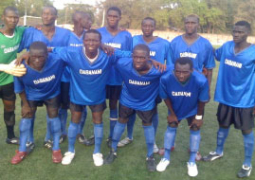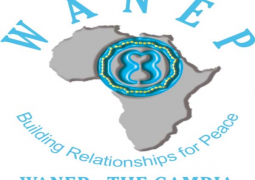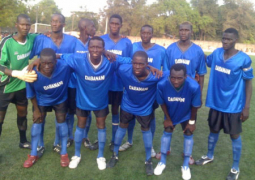One Kebba Secka, a state security agent, yesterday testified before Principal Magistrate Ibrahim Kijera of the Bundung Magistrates’ Court, in the trial involving one Alasanna Jobarteh.
Alasanna Joabrteh, a militant of the United Democratic Party UDP, was charged with broadcasting without a licence contrary to the Information and Communication Act.
Designated as prosecution witness number one (PW1), officer Secka told the court that he lives in Tallinding, and is an NIA officer, adding that he was assigned to obtain a cautionary statement from the accused person, and in doing so, he invited an independent witness called Foday Sanyang.
He testified that the accused decided to write his own statement, which the accused signed, the independent witness also signed, and he endorsed his name on the statement.
Asked by the prosecutor whether he could identify the said statement, he said he could identify the six-leaflet statement.
The statement was shown to him, which the witness recognised and the prosecutor applied to tender it in evidence as an exhibit, without any objection from the defence counsel, Ousainou Darboe.
Under cross-examination by the defence counsel, the witness told the court that he is a Muslim, and subscribes to the Islamic faith.
He added that the independent witness was not selected by him, but was brought by his boss.
Asked whether he had given chance to the accused to call his lawyer to be present at the time of obtaining the cautionary statement, the witness stated that he did not give any option to the accused to call his lawyer, at the time of obtaining the statement from him.
The witness told the court that he did not know that the accused was arrested on 15 December 2013, adding that he only came to know that the accused was arrested on 15 December 2013, at the time he was obtaining a cautionary statement from him.
Asked again whether he knew from his casual conversation with the accused, that the accused did not have any access to both his family and lawyer, the witness replied that he did not know that, and he was acting under directives.
He was asked whether he was also directed not to allow the accused to call his lawyer at the time of obtaining cautionary statement from him, and the witness replied that the issue of a lawyer did not even arise at the time of obtaining the statement.
The witness added that he had been in the security services for 17 years, and had spent two years at the investigation department.
Asked if in his two years experience, it was correct that cautionary statements were obtained from suspects, who were alleged to have committed an offence, the witness answered in the affirmative.
He was then asked what offence the accused committed, that warranted him to take his cautionary statement.
The witness told the court that he was never told what the accused had committed, and he did not know whether the accused had a broadcasting station in The Gambia.
He added that he did not know whether at the NIA they had the list of all the broadcasting stations from Teranga FM to Nyakoi community radio.
He said he was prepared to go to the Ministry of Information to get the said list.
“I did not hear the accused on any of the radios broadcasting anything,” he stated.
When asked whether he (the witness) had a Skype account, the witness said he did not have a Skype account, and he does not browse.
Asked whether he needed a licence to pass any information through Skype, the witness said “I do not know.”
The defence counsel, at that juncture, applied for the witness to produce the list of all the radio stations in The Gambia, and his application was granted.
The case continues on 20 January 2014.
Read Other Articles In Article (Archive)




